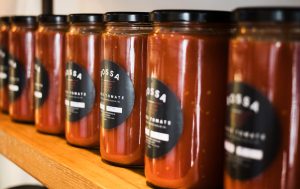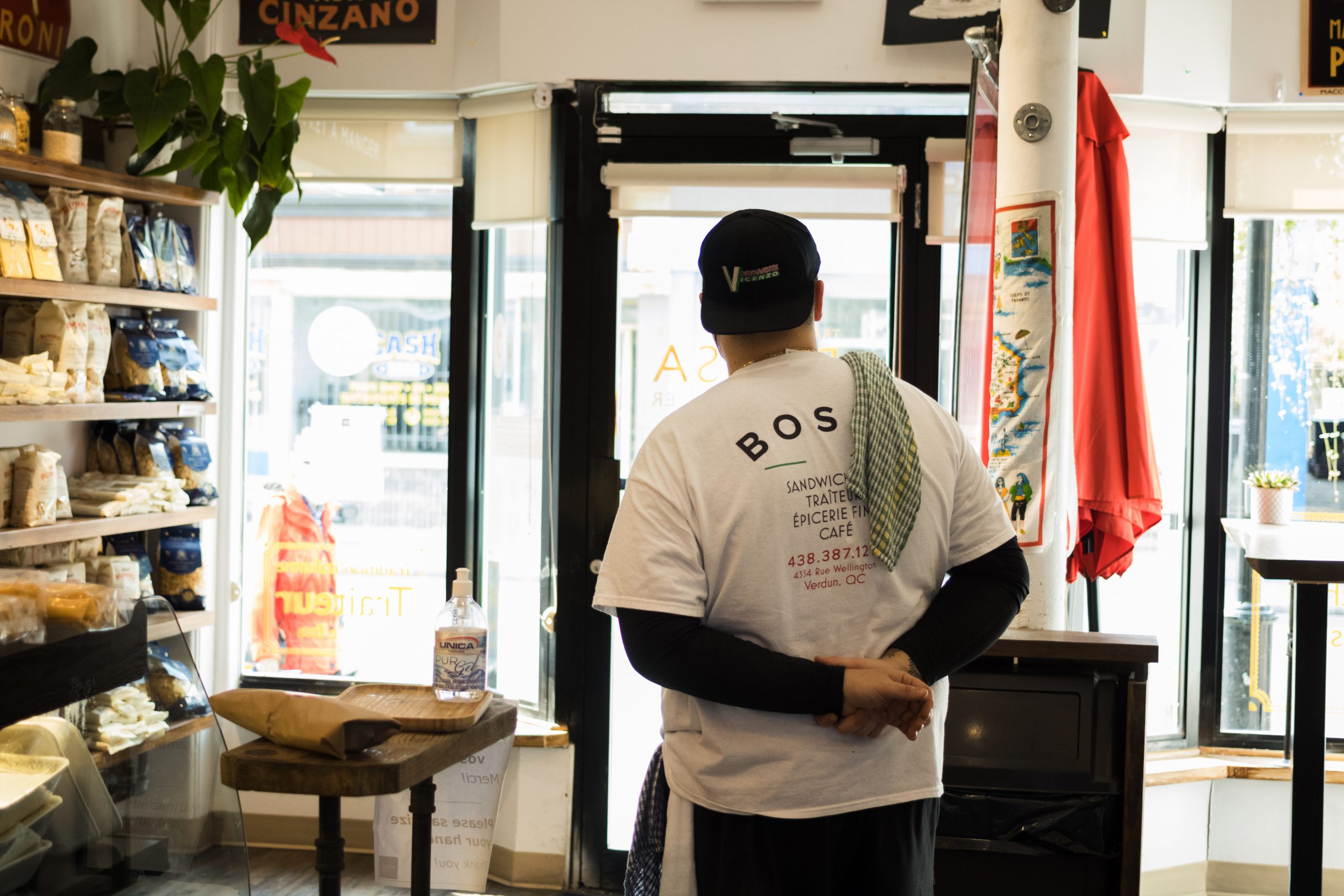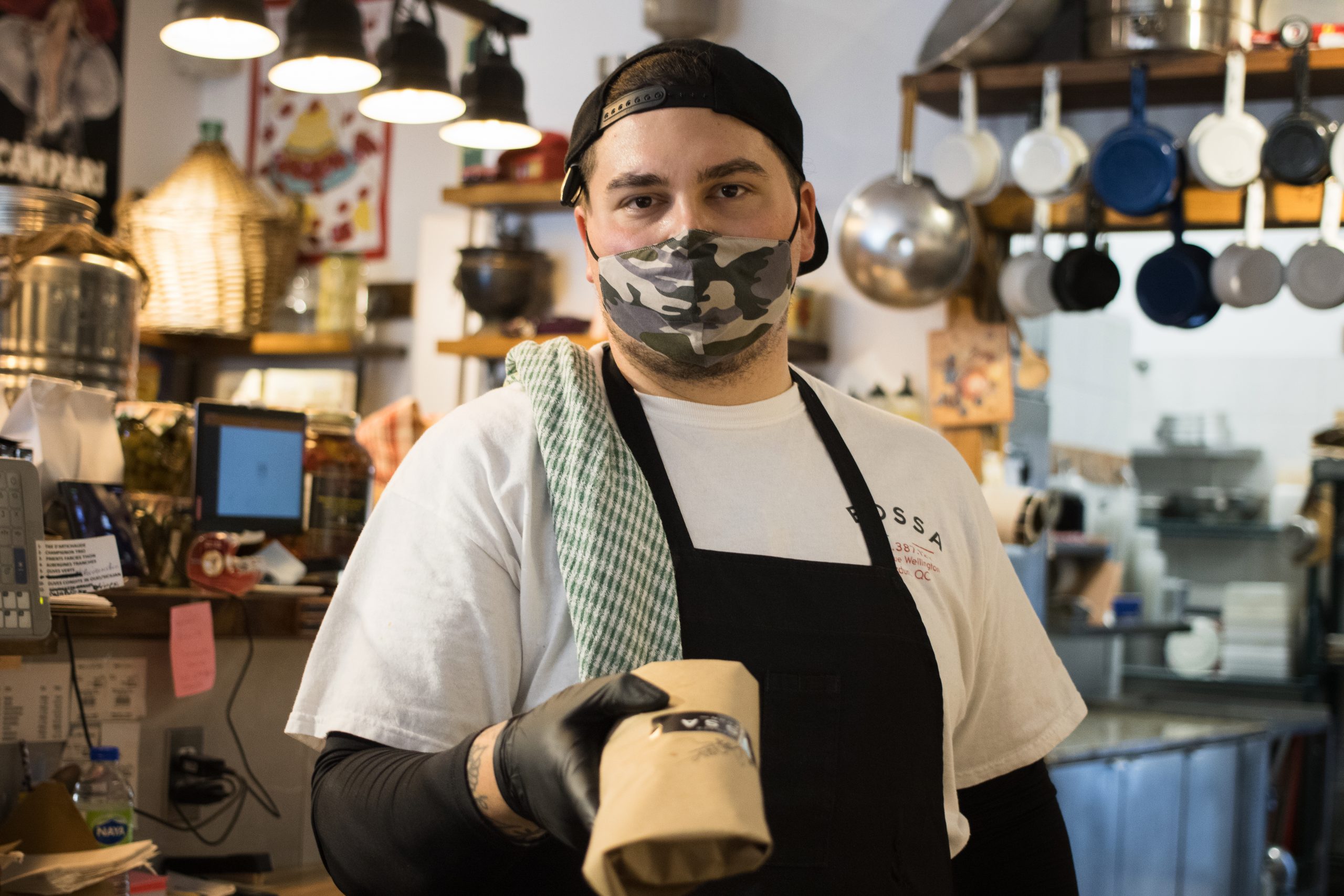JMSB student Daniel Lomanto tells us about the highs and lows of opening his own business at 23 years old
Months into the pandemic, we’ve seen its devastating effects on our economy and local businesses. Though the federal government has been scrambling to offer guidance and financial support for business owners, the sharp decrease in clientele and consumers’ continuing aversion to retail therapy has hit hard.
As COVID-19 spread, the situation evolved rapidly everywhere: within days of the announcement of the first case of the virus in Canada, the federal government announced a countrywide lock down, and Quebec ordered to close all non-essential businesses. For Daniel Lomanto, the owner of Italian deli-grocery shop BOSSA, it was the ability to react quickly to the new measures that spared him from needing to close shop and allowed his store to flourish. Located on Wellington Street, the main artery in the borough of Verdun, the store serves a large portion of the neighbourhood; it was therefore crucial for him to adapt not only for his customers, but also to make a living with the business he is passionate about.
However, the pandemic was only one of the many adversities faced by Lomanto, who, as he opened the business at the age of 23, lost everything to a fire. In true socially distanced fashion, we discussed his store’s story over the phone, and how he was able to overcome difficult times.
EL: Tell me about when you first opened the restaurant.
DL: We opened for the first time about two and a half years ago. We chose Verdun because I’m a resident of Lasalle, and all my friends growing up were from Verdun, so it was always close to home. When I started working in restauration, four to five years ago, I was always working on Wellington Street. I always saw that there was a potential for an Italian prêt-à-manger and catering place because there was nothing in the area like that. So I got together with my mom — she’s my business partner — and we opened this place.
EL: What did opening this business mean to you?
DL: Honestly, it’s family to me. My mother’s here all the time, my grandparents come here to help. We always make all of our sauces at home. I have a pretty big garden in my backyard that they help take care of. It just brings everyone together, and I couldn’t think of a better thing for us to be doing right now.
EL: What hardships did you encounter when you first opened BOSSA?
DL: Starting a business at 23 is really hard. I was at John Molson at the time — I still am, but studying part-time — but managing, building everything up, making everything come together, and even just having people take me seriously at that young of an age, those were some of the hardships I had at the beginning.
Then, two months into opening, we had a fire: one of my freezers short-circuited overnight, causing an electrical fire, and we had to close for seven months. We renovated the place and had to settle everything with the insurance company.
EL: How did you feel?
DL: It was a very low time. But at the same time, I tried to be optimistic about things and I saw it as an opportunity to figure out what was and wasn’t working. We sort of redesigned and reorganized the entire business after the fire, so I always look at it as a blessing in disguise.
EL: How did you react when COVID first hit in March?
DL: When COVID happened a couple of months ago, we made the decision to stay open — obviously while taking precautions. But having closed for seven months the year before, I wasn’t about to close down again. We powered through and it ended up working in our favour. We were one of the only places that stayed open on the entire street, so our clientele was really happy; they were extremely grateful.
EL: Did you find that you were prepared when COVID hit?
DL: Yeah, I could say that. When the fire hit… it changes your mentality. You just want to go through with it and nothing can stop you, you’re invincible. So when COVID hit around mid-March, the second they shut the city down, people were lining up down the corner to buy our sauces, our pasta. So from then it was just we’re going straight through, we’re not stopping anymore. The fire didn’t really help us, but it did give us the 
We’re pretty lucky because we were always a take-out and grocery place, we never really had seats inside. Within the first couple of days, we were able to implement having two people at a time, wearing a face mask, hand sanitizers everywhere, and we put up plexiglass everywhere.
EL: How did you feel having your family help you throughout the crisis?
DL: It’s tricky, it was a bit stressful. I don’t want to say I was risking anything, but at the same time, my mom was here. I was always making sure that she was being very careful, and I had to be very careful as well.
EL: Do you have any upcoming projects for your business?
DL: We’re always trying to improve, and I definitely embrace the feedback from my clientele. They’ll sit down and talk to me and give me new ideas, so it’s a real personal relationship with all my customers. We’re constantly working on projects, but other than coming up with new menu items, it’ll have to be day-by-day for now — we’ll have to look into picking things up once everything settles.
EL: What has been the most rewarding part of owning your business?
DL: Just having fun, every day. When I walk into work, it never feels like I’m working. It’s weird to say, but it almost feels like I’m doing a big school project. There are always new things that we want to try, and even just getting customers’ opinions — it’s really fun.
Photos by Christine Beaudoin






